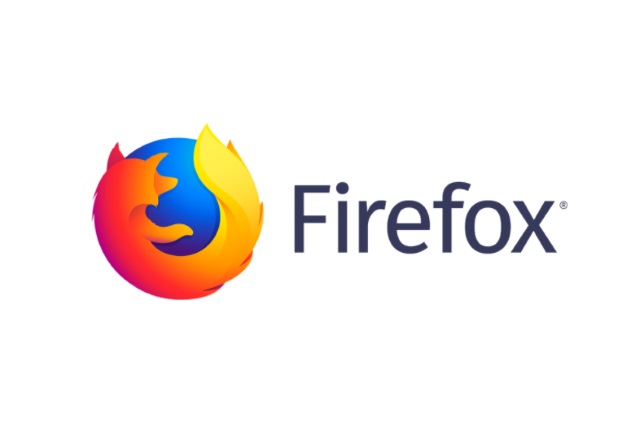
The 10 phishing subject lines you're most likely to click
Phishing is still a key tool for cyber criminals as they seek to insert malware onto machines and to get hold of personal details.
Although most people are aware of the threat there are still some subject lines that are much more likely to deliver results for the phishermen than others, according to security awareness training specialist KnowBe4, which has released its Top 10 Global Phishing Email Subject Lines report for the third quarter of 2017.

73 percent of CFOs trust the cloud for financial data
Chief finance officers are becoming more confident about the use of the cloud to store their company's data according to a new survey.
The study from cloud performance management company Adaptive Insights finds that just three years ago only 33 percent of CFOs trusted the cloud for their financial data, but today 73 percent do so.

Telemetry: OxygenOS secretly collects user data, sending OnePlus a wealth of information
OxygenOS, the customized version of Android used by OnePlus on its smartphones, has been found to be collecting data about users -- and it's not anonymized. Telemetry is something that has been associated with Windows 10, but now the Chinese smartphone manufacturer has its fans concerned.
That a phone collects certain information about usage is not particularly unusual -- it helps to identify problems and speed up software development. But a security researcher's discovery that his OnePlus 2 was sending highly detailed information back to OnePlus without consent has set privacy alarm bells ringing (the issue also affects more recent OnePlus handsets). OnePlus might prefer that you spend your time thinking about the upcoming OnePlus 5T and OnePlus 6, but this tale of telemetry is going to dominate for a little while.

Privacy lives! Purism Librem 5 Linux smartphone exceeds crowdfunding goal
As companies continue to violate our privacy, such as Microsoft with the latest version of Skype for iOS and Android, we slowly become desensitized to it. In other words, as time marches on, people slowly become more and more accepting of being spied on. This is tragic, as our private information has value, and many will simply turn it over in exchange for a free service or other nonsense.
Purism is a company that is fighting for your rights -- regardless of whether or not you appreciate it. The company maintains the privacy-focused Pure OS Linux distribution, plus it manufactures very secure laptops with radio, webcam, and microphone hardware kill-switches. Purism also wants to produce a secure Linux-based smartphone, called Librem 5. Unfortunately, the company needed $1.5 million to get started. Well, folks, I am elated to say that earlier today, Purism met and exceeded that goal! In other words, it looks like the Librem 5 will become a reality.

Warning: Microsoft is using Cortana to read your private Skype conversations
Cortana is a decent voice assistant. Hell, "she" is probably better than Apple's woefully disappointing Siri, but that isn't saying very much. Still, Microsoft's assistant very much annoys me on Windows 10. I don't necessarily want to use my desktop PC like my phone, and sometimes I feel like she is intruding on my computer. While some people like Cortana, I am sure others agree with me.
Depending on how you feel about Cortana, you will either hate or love Microsoft's latest move to shoehorn the virtual woman into your life. You see, starting today, Cortana is coming to Skype on mobile for both Android and iOS. I don't think anyone actually wanted her in Skype, but oh well, she is on the way. Unfortunately, there is one huge downside -- Microsoft is using her to scan your private messages! Yup, the Windows-maker seems a lot like Google with this move.

FBI uses PureVPN's 'non-existent' logs to track down internet stalker
No longer operating under the illusion that the internet offers a mask of anonymity, increasing numbers of people are turning to VPN software to protect their privacy and mask their identity online.
But a recent case shows that the FBI used the logs of PureVPN to track down a user believed to be an internet stalker. This may make PureVPN users think twice about just how anonymous they really are, particularly when the company claims: "We do NOT keep any logs that can identify or help in monitoring a user's activity."

EFF criticizes iOS 11's 'misleading' Bluetooth and Wi-Fi toggles for being a privacy and security risk
The strange, unintuitive way Bluetooth and Wi-Fi toggles work in iOS 11 has drawn ire from many quarters. The latest voice is that of digital rights group the Electronic Frontier Foundation (EFF) which says that the "off-ish" setting now offered is misleading.
As we have covered in a previous story, Apple has changed the behaviour of the two toggles so that when they are flicked to the off position, the Bluetooth and wireless radios are not actually switched off. EFF says that this is "bad for user security" and calls for greater clarity from Apple.

Three-quarters of Brits worry about risks from connected homes
Despite their potential to reduce bills and make life easier, 76 percent of British consumers are worried about the impact of smart technology and connected homes.
A study by price comparison site MoneySuperMarket polled more than 2000 people and reveals many are fearful of the smart homes concept, with unapproved data collection cited as the greatest worry.

Purism exceeds $1 million in funding for Librem 5 Linux-based smartphone
Consumers don't care about privacy anymore, right? Wrong -- some actually do. True, we are systematically being conditioned to surrender our private information and rights nowadays, but some people are still fighting the good fight. In many ways, both the Linux and open source communities can be seen as the foundations of internet privacy.
The most popular mobile operating system on the planet, Android, is already based on Linux, but with Google in charge of it, many consumers cannot depend on it for privacy. With that said, Purism is planning to fight the impossible fight against Android and iOS with the "Librem 5" smartphone. This is a device that will run a privacy-focused Linux-based OS called "Pure OS," but the hardware is wide open for any OS, really. Purism is trying to raise $1.5 million through crowdfunding, and earlier today, it reached a significant milestone -- $1 million! Maybe the fight isn't impossible after all...

UK's confused Home Secretary doesn't understand encryption -- but wants to 'combat' it anyway
The UK Home Secretary, Amber Rudd, has admitted that she doesn't understand end-to-end encryption, but still wants to "to find the best way to combat" it anyway. Speaking at the Conservative Party conference, she said that Silicon Valley had a "moral obligation" to help fight the crime and terrorism she believes is abetted by encryption technology.
Despite having previously voiced support for back doors into systems such as WhatsApp, Rudd said she does not want such access, nor is she seeking to ban encryption. Saying "I don't need to understand how encryption works to understand how it's helping -- end-to-end encryption -- the criminals," she added that she wants technology firms to make it easier for police and security services to access encrypted data.

Mozilla updates Firefox Privacy Notice with greater detail, transparency and prominence
Mozilla has announced an update to Firefox's Privacy Notice which aims to better inform users about what data is collected and why.
As well as making its privacy policies more understandable, Mozilla is also trying to ensure that more people actually see them. For new installations, the Privacy Notice is automatically displayed in a tab. But it's the layout and accessibility of the updated document that's the real change.

Apple launches new privacy page and reveals all about Face ID
Apple has launched a revamped privacy page proclaiming that its products are "designed to protect your privacy." Describing privacy as "a fundamental human right," the page explains the privacy functions of apps, Siri, Apple Pay and Touch ID.
The company describes not only how it protects personal data with encryption, but also how it responds to government and legal requests for data. Apple has additionally published a paper which goes into some detail about how the Face ID feature of the iPhone X works -- and reveals its limitations.

Adblock Plus introduces a new way to block ads on Facebook
Facebook -- like many companies who exist solely online -- is highly reliant on ad revenue. As such, it goes to great lengths to outwit ad-blocking tools that seek to rob it of income by giving users a more enjoyable experience.
Adblock Plus is a well-known name in this field, having already had something of a back-and-forth with the social network as Facebook took steps to block adblockers. But now Adblock Plus has a new filter available to block ads on Facebook -- and improve privacy -- and it says it is more resilient than ever.

Apple now collects data from Safari using differential privacy to identify problem websites
With the launch of macOS High Sierra, Apple is making some changes to Safari. One of the key changes is the introduction of differential privacy technology which gathers data about the websites users visit in order to identify those that are problematic because of high memory usage or crashes.
As the name of the technology implies, as well as gathering useful data from users, one of the key features of differential privacy is that it respects the privacy of individuals. The AI-powered technology keeps, according to Apple's Craig Federighi, "the information of each individual user completely private" while still collecting data that will enable Apple to decide the priority with which it should tackle problematic sites.

Facebook ads can target you based on your real-world store visits
That your online activities influence the ads you see on Facebook and other websites is well known. But now Facebook has developed tools that makes it possible to track your location in the real world to determine which stores you visit and then use this information to hit you with targeted ads.
The new tools work for users who allow the Facebook app to access their location. The social network and advertisers are making profitable use of this valuable information.
